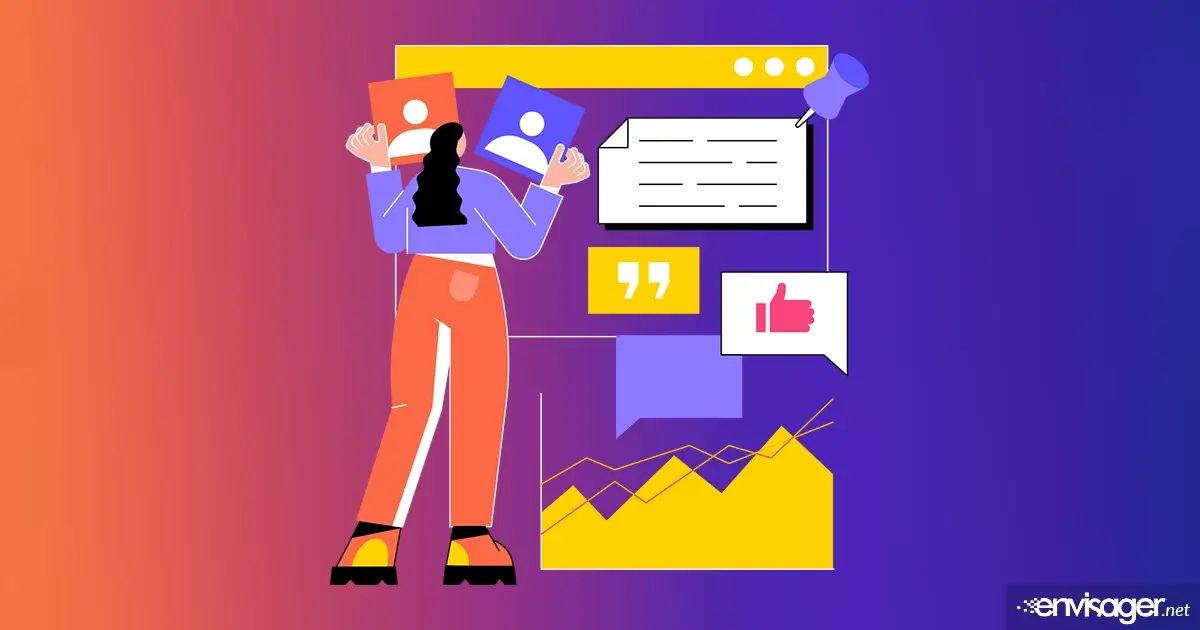When To Use a One-Page Website Design

If you are looking to get your start-up small business online fairly quickly, you may be considering a single-page website design. Choosing between custom web design and one-page websites can be a daunting task given the competitive market.
Mobile searches are more popular than ever among online users. More than that, their expectation are becoming more demanding. But both custom web design and single-page websites have their advantages and disadvantages. This is why it’s important for small business owners to understand their business needs and future goals to make an informed decision from the start.
The purpose of this article is to share information about one-page website design, the advantages and disadvantages, and what type of businesses should consider this implementation.
What is a one-page website design?
A one-page website design is exactly what it sounds like. It’s a website that only contains one HTML page with no additional web pages such as Contact Us, About Us or other pages. All of the content is fully loaded on that one page. When it comes to navigation, users click a link and it jumps to that section on the same page. If there is no such guided link, users will have to scroll down to reach the expected content.
With its smooth scrolling and immersive feel, these types of websites provide all the information on the same page. Ideally, it offers the precise amount of information visitors need to make a decision and act on it. As such, one-page websites are content-oriented and more suitable for events, portfolios, product presentations, and landing pages.
What are the advantages and disadvantages of one-page websites?
Many small business owners are choosing single-page websites over multi-page websites to achieve their business goals. Even though there is much buzz surrounding this type of implementation, you should carefully consider certain critical aspects. For example, website redesign, user’s journey, SEO, etc. With this in mind, let’s explore some of the benefits and drawbacks of such websites.
The advantages of one-page websites
1. Excellent mobile experience
As we all know, search queries from mobile devices exceeds desktop searches. Intrinsically, this is one of the most notable benefits of having a single-page website as it converts easier to mobile. Plus, mobile users find them more simple to navigate. In addition, they load very fast which is essential for SEO.
2. More convenient to reach target audience
A single page website is the best solution for targeting a specific audience with a particular type of content. This type of website offers better control of user behavior on your site, making it easier to guide them in the direction you want. Since all of the information is integrated on the same page, users get all details in the correct order. But keep in mind that a single-page website is meant to be simple, so don’t stuff lots of content in one section.
3. Boosted conversions
Users are less likely to get lost in details and will have a clear mission which is the specific purpose of single-page websites. In general. a single-page website can increase conversion rates by nearly 38% because the sales process begins from the start. As a result, users move more quickly through the funnel without getting distracted by other visual elements or offers.
4. Higher page authority
Links are one of the factors that determine how well a website ranks in search engine results pages. Another benefit of a single-page website is that each link will point to the main website URL. Thus, avoiding low-performaning pages.
The disadvantages of one-page websites
1. Restricted keyword targeting
While single-page websites are ideal for the user journey, they have a downside when it comes to SEO, such as keyword ranking. Single-page websites limit your ability to rank for a wider selection of keywords because they are generally designed around one main concept. On the other hand, multi-page websites provide opportunities to rank for a specific audience because each page is different. Therefore, you can employ a unique set of keywords.
2. Minimal content details
Another disadvantage of a one-page website design is that their content is very general and not as robust as multi-page websites. Because you cannot dedicate a different page for each subject, all information is compressed into one page. For this reason, your website organization and layout has to be spot-on to deliver the best user experience. Ultimately, each section needs to be clearly defined and there should be a new section for each topic.
3. Inadequate advanced seo implementation
A one-page website design cannot take advantage of advanced seo strategies like siloing. Siloing is structuring your website’s content into distinct sections on your website with the purpose of demonstrating authority in those areas. In short, website content cannot be organized into categories to better showcase your content and expertise. Disregarding the type of website you have results in too much content which will look spammy and unorganized.
4. Limited scalability
Single-page websites are not conducive to growing your brand because it is focused on having narrow content which means minimal scalability. Moreover, it is not suitable for businesses that need varied, complex content with categories and subcategories. In view of this, we recommend carefully considering your future business objectives before deciding on a type of website.
When to use a one-page website design
Given our points above, single-page websites are not suitable for all businesses. In addition to their limited content, they also oppose seo disadvantages. However, there are some instances when single-page websites are ideal such as the following:
- Personal websites
- Events
- Portfolios
- Product presentations
- Landing pages
The bottom line…
If you do not have a lot of content, a one-page site is a quick way to get your business online. Plus, they allow your site visitors to find all the information on one page by using navigation links that jump to the section. This avoids having to wait for a new page to load as is the case with multi-page sites.
Regardless of the type of website you are considering, our expert WordPress website designers can help you achieve your small business goals. Get in touch with us today and let’s discuss your business needs!
You may also enjoy reading: Understanding the value of a business logo design

Dr. Amelia Davis
WEB DEVELOPMENT DIRECTOR
Dr. Amelia Royster-Davis is a Doctor of Education and an Instructional Designer. As the Director of Web Development at Envisager Studio, her primary focus is to lead the web development team in building modern, responsive websites. In her spare time, she writes about web development, UI and UX.




